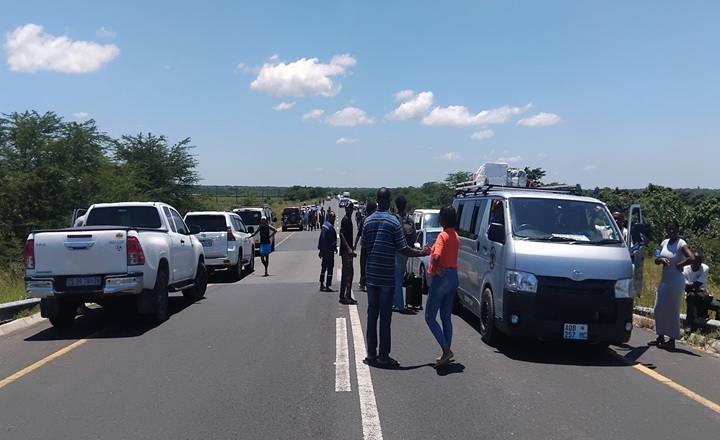
Health Professionals Strike in Mozambique
.jpg)
In a fight for fair working conditions and quality care, healthcare professionals in Mozambique have faced a series of challenges over the years, which culminated in a new phase of protests scheduled for April 17, 2025. This dissatisfaction is a reflection of precarious working conditions, which include not only the lack of overtime pay, but also issues such as work overload and the lack of adequate resources to carry out their activities.
At a press conference held on April 14, the Association of Health Professionals United and Solidarity of Mozambique (APSUSM) formalized the decision to suspend hospital care outside regular hours, limiting it to 7:30 a.m. to 3:30 p.m. This measure is a drastic but necessary step that aims to draw the government’s attention to the critical situation faced by these professionals.
Anselmo Muchave, president of APSUSM, stated that the decision to restrict services is due to the government's inertia in responding to the demands of the class. Health professionals also expressed their frustration regarding the lack of dialogue and negotiation with the authorities, which has contributed to an unsustainable work environment.
The reasons that led to the suspension of the shift work regime are varied and complex:
● Lack of overtime pay: Many professionals are working beyond normal hours without proper financial compensation.
● Unpaid shift allowances: Night workers and those who work non-standard hours are not receiving the financial incentives established by law.
● Weekly rest not respected: The lack of adequate rest time not only affects the mental and physical health of professionals, but also compromises the quality of care provided to the population.
These factors have led professionals to feel undervalued and unmotivated, which can impact their ability to offer quality care.
The announced strike could have significant consequences for the healthcare system in Mozambique. With the suspension of services outside normal hours, the population could face:
● Increased queues and waiting times for care: With fewer hours of care available, patients who need medical care may face long waits, worsening their health condition.
● Overload on emergency services: Restricted opening hours may lead to increased demand on emergency services, which are already overburdened.
● Risk to public health: The interruption of essential services can put the health of the population at risk, especially in emergency situations or during disease outbreaks.
Civil society and healthcare users have expressed concerns about the impact this strike could have on public health. In the meantime, the government’s response to this situation will be crucial. Failure to act could result in increased public dissatisfaction and additional pressure on the authorities to address workers’ grievances.
The resumption of strike action by healthcare workers in Mozambique is a clear sign of the urgent need for a more effective approach by the government. Open dialogue and negotiation are essential to finding sustainable solutions that meet the needs of workers and ensure quality care for the population.
Outras noticias

Society
19-year-old woman arrested for kidnapping newborns at Chókwe Rural Hospital
2026-01-08

Society
Tension in Salamanga: Conflict between the Community and Rangers of the Maputo Reserve
2026-01-08

policy
YELLOW CARD NO. 1 OF THE YEAR: BETWEEN PROMISES, POPULISM AND THE URGENCY OF NATIONAL PRIORITIES
2026-01-08

policy
YELLOW CARD FOR THE FIRST PRESIDENTIAL REPORT: NARRATIVE ARROGANCE, SYSTEMIC CONTINUITY, AND THE WASTE OF A FIRST YEAR OF HOPE
2025-12-25

Society
Intaka-Boquisso road floods after inauguration, leaving residents outraged
2025-12-25
Copyright Jornal Preto e Branco All rights reserved . 2025